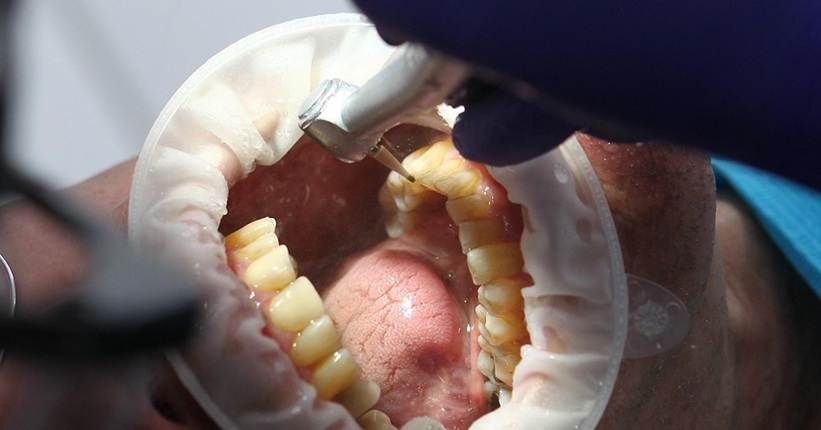
Broken Tooth — How Can It Be Treated?
Tooth chipping is a fairly common condition that can affect both children and adults. It arises as a result of trauma, sudden impact, excessive chewing of hard foods or neglect of oral hygiene. A broken tooth not only looks unsightly, but can also pose a serious threat to oral health. Depending on the degree of damage, treatment may include different methods.
The most common causes of tooth decay
- Injuries — blows to the face, car accidents, falls or sports contacts can lead to tooth damage.
- Habits — grinding teeth, biting nails or other bad habits weaken the enamel and promote chipping.
- Improper nutrition Eating hard foods, such as nuts, ice cream or hard candy, can damage the enamel.
- Bite disorders — the incorrect position of the teeth causes excessive load on some of them, which leads to cracks and chipping.
- Hygienic Negligence — infrequent brushing of teeth and inaccurate removal of plaque weaken enamel.
- Diseases — caries and periodontal disease weaken the structure of the tooth.
- Aging With age, teeth become less flexible and more prone to damage.
Minimally broken tooth
A small crush usually does not pose a serious danger if it does not touch the pulp of the tooth. However, even minimal damage to the enamel can cause pain, hypersensitivity to cold or heat, and in extreme cases, infection of the pulp. If left untreated, crushing can lead to further damage such as cracks or fractures.
Treatment depends on the size and location of the defect. Small chips often do not require intervention, but only regular check-ups with the dentist. Larger enamel defects can be supplemented with a filling.
Crushed single
The crushing of the front teeth, such as one or two, is especially noticeable and can affect self-confidence. Treatment may consist in the use of a filling or veneering.
- Filling — suitable for minor damage to the enamel, when the pulp is not compromised.
- Veneer - a thin layer of porcelain or composite applied to the front surface of the tooth, used for larger cavities or to improve aesthetics.
Sometimes it is necessary to cover with veneers both units for symmetry and a natural look. The final decision is made by the dentist after a thorough examination.
Broken tooth near the gum
Cavities in the parotid region are especially dangerous because they promote the deposition of bacteria and the formation of caries. Even a small crunch near the gum requires a quick dental consultation.
In case of severe damage and infection of the pulp, root canal treatment or tooth extraction may be necessary. A quick response prevents the spread of infection.
Crushed tooth with a filling
If the crushed tooth already has a filling, further damage requires a visit to the dentist. Depending on the degree of damage, it may be necessary:
- replenishment of the defect,
- replacement of the old seal,
- root canal treatment, if there was an infection of the pulp.
Cracked tooth
The causes of tooth cracking include:
- mechanical injuries,
- excessive load,
- spasms of the muscles of the lower jaw,
- stress and gnashing of teeth,
- malocclusion,
- caries,
- improperly performed root canal treatment.
Treatment depends on the degree of damage — from filling, through endodontic treatment, to extraction. For pain, you can use painkillers (paracetamol, ibuprofen) and avoid hard foods.
How to prevent tooth cracking or chipping?
- Avoid chewing hard objects (ice, pencils, nails).
- Brush your teeth with a soft brush and gentle movements.
- Limit the consumption of hard and sticky snacks (candy, nuts, popcorn).
- Pay attention to grinding your teeth - if necessary, use a protector overnight.
- Athletes are advised to use mouthguards.
- Take care of regular check-ups with the dentist.
What not to do with a broken tooth?
- Do not try to fix the tooth yourself.
- Do not delay the visit to the dentist.
- Do not drink very hot or very cold drinks.
- Avoid hard and sticky foods.
- Do not bite with a damaged tooth.
- Do not apply warm compresses to the swollen face - use cool ones.
- Do not take aspirin without consulting a doctor.
Remember that a broken tooth requires immediate dental care to avoid more serious complications.
If you have a broken or cracked tooth, do not delay your visit to the dentist. Timely diagnosis and proper treatment will preserve the health and aesthetics of your smile.
Content author

Dr. Jędrzej Gącienica-Ciułacz
Dr. Jędrzej Gącienica-Ciułacz is a dentist who, thanks to his cordial approach, facilitates visits even for the most fearful patients. His extraordinary ability to build trust and natural kindness allows patients to feel safe and comfortable from the first moments in the office. He is a doctor who does not recognize the concept of “hopeless case” — instead, he treats every challenge as an opportunity to create a beautiful, healthy smile. By combining his medical knowledge with an individual approach to each patient, he creates an atmosphere of support and understanding.

Start treatment already today!
Make an appointment and discover why our patients recommend us to their loved ones. We will take the utmost care of your smile.


